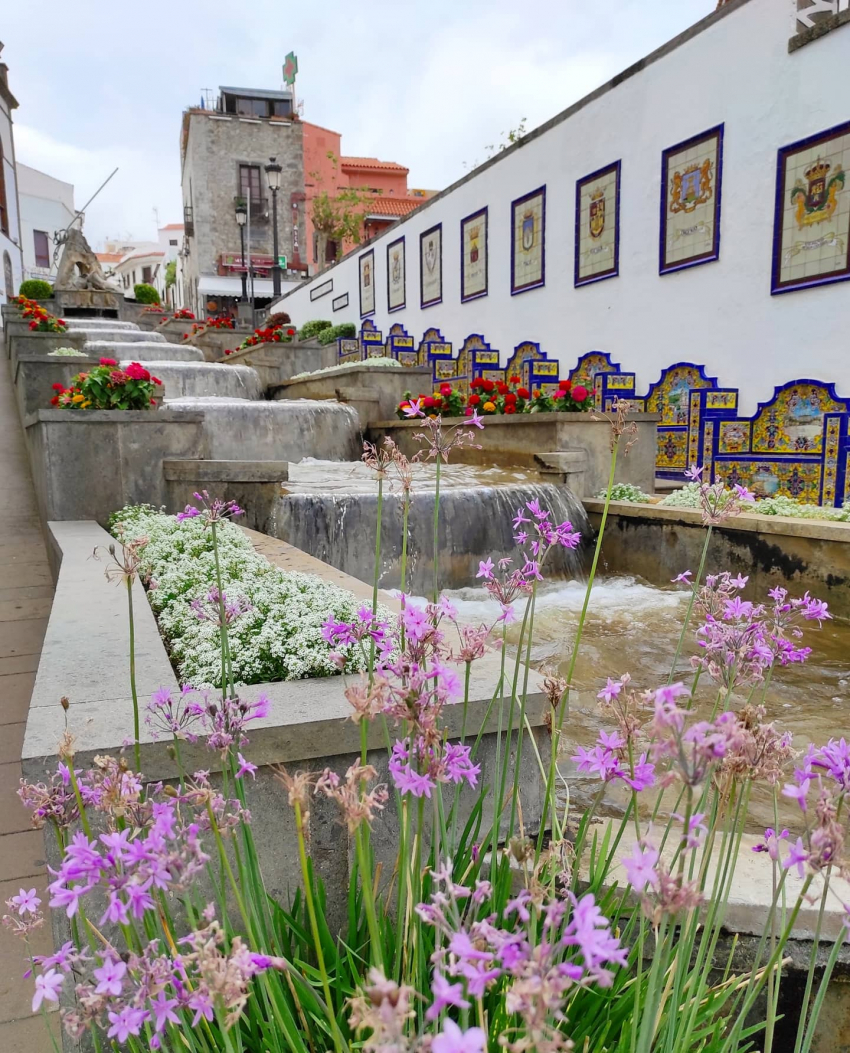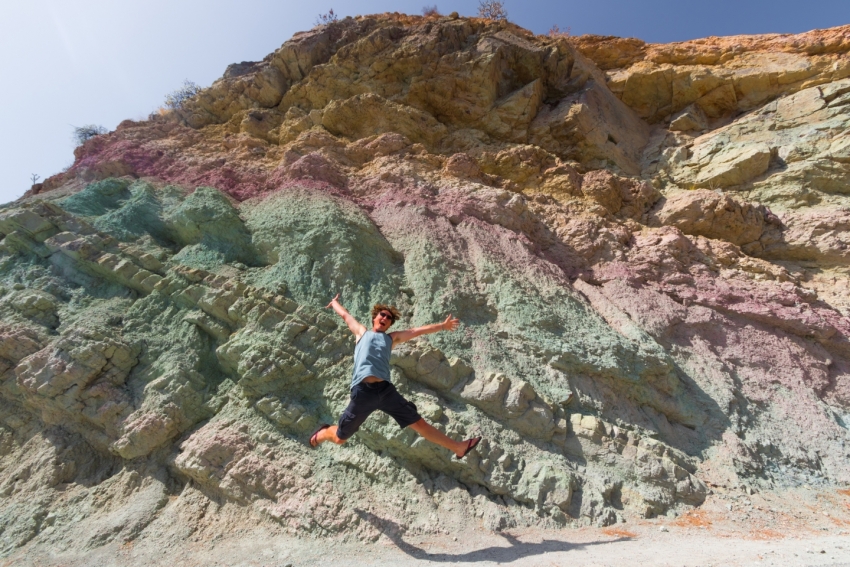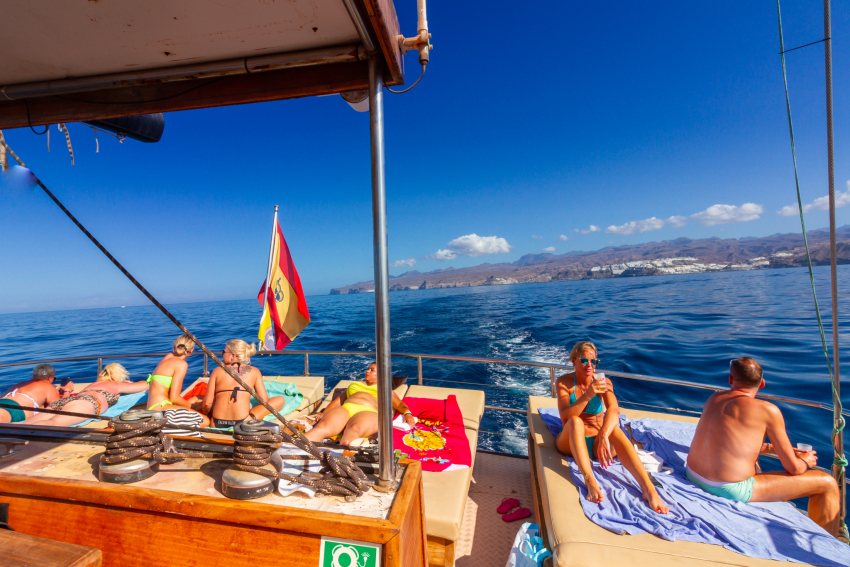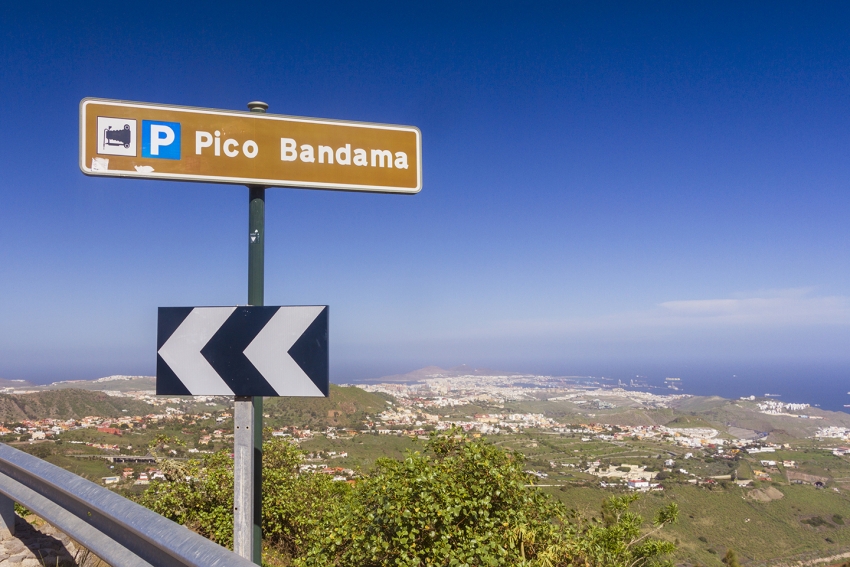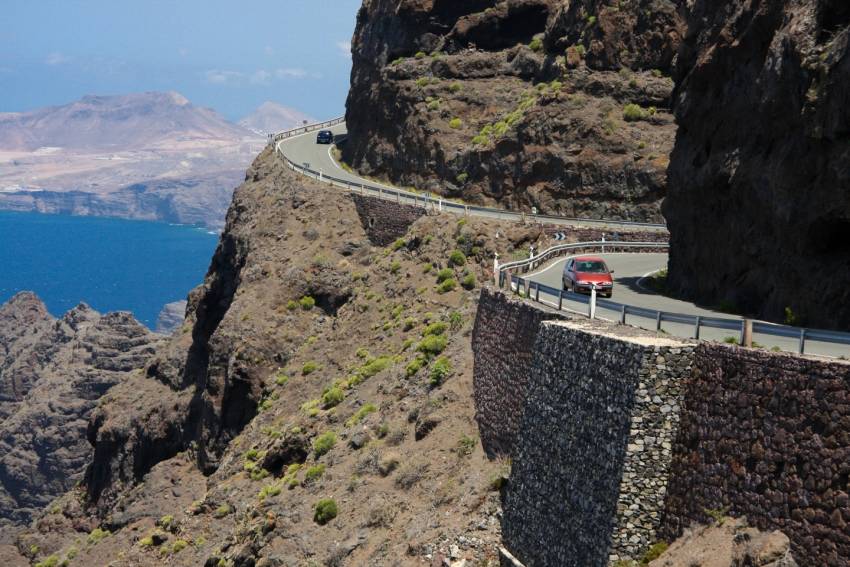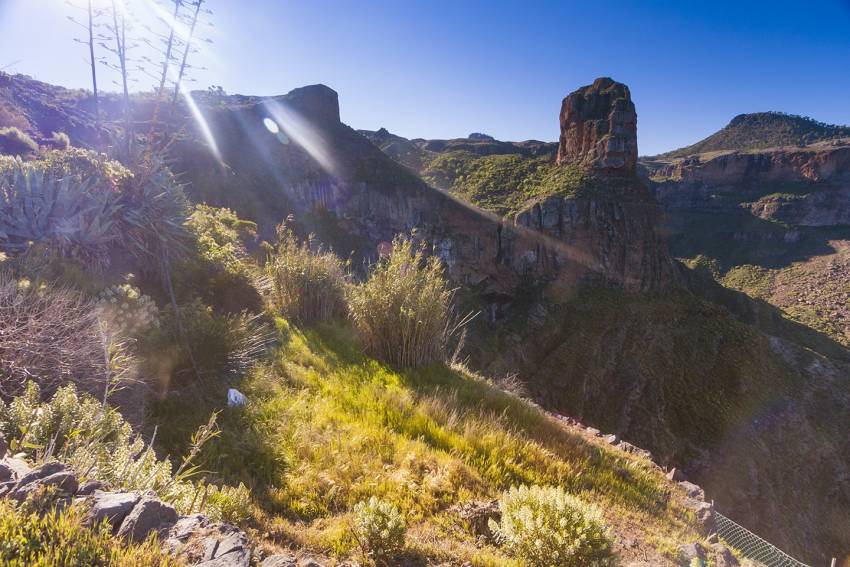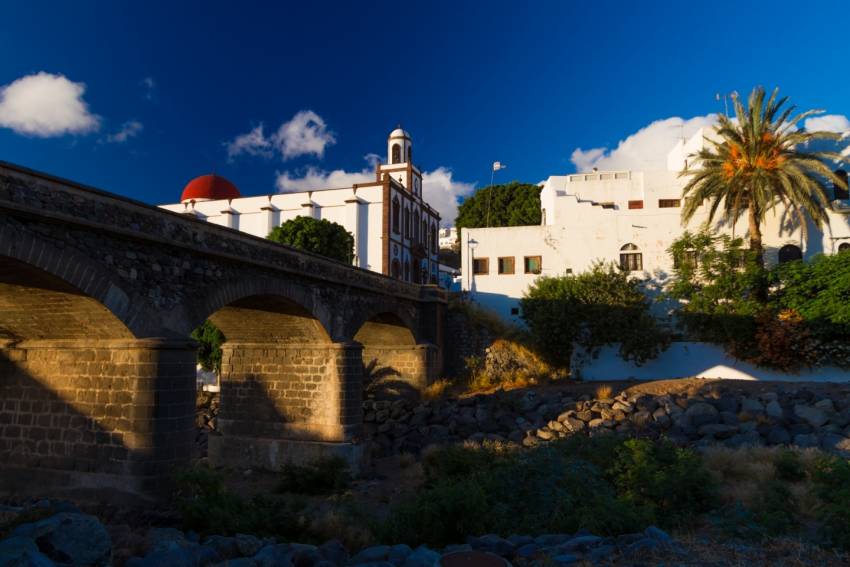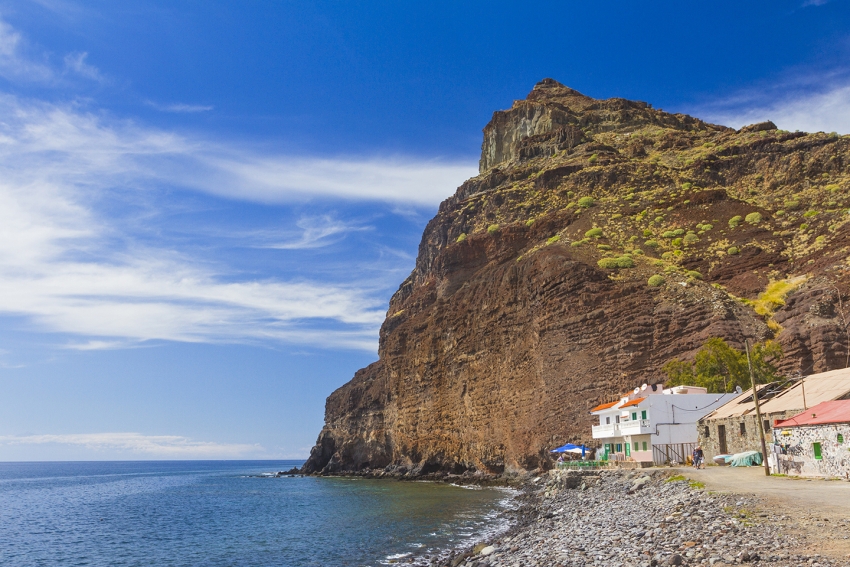Go Green In Firgas: Watercress And The Growing Call To Free The Water
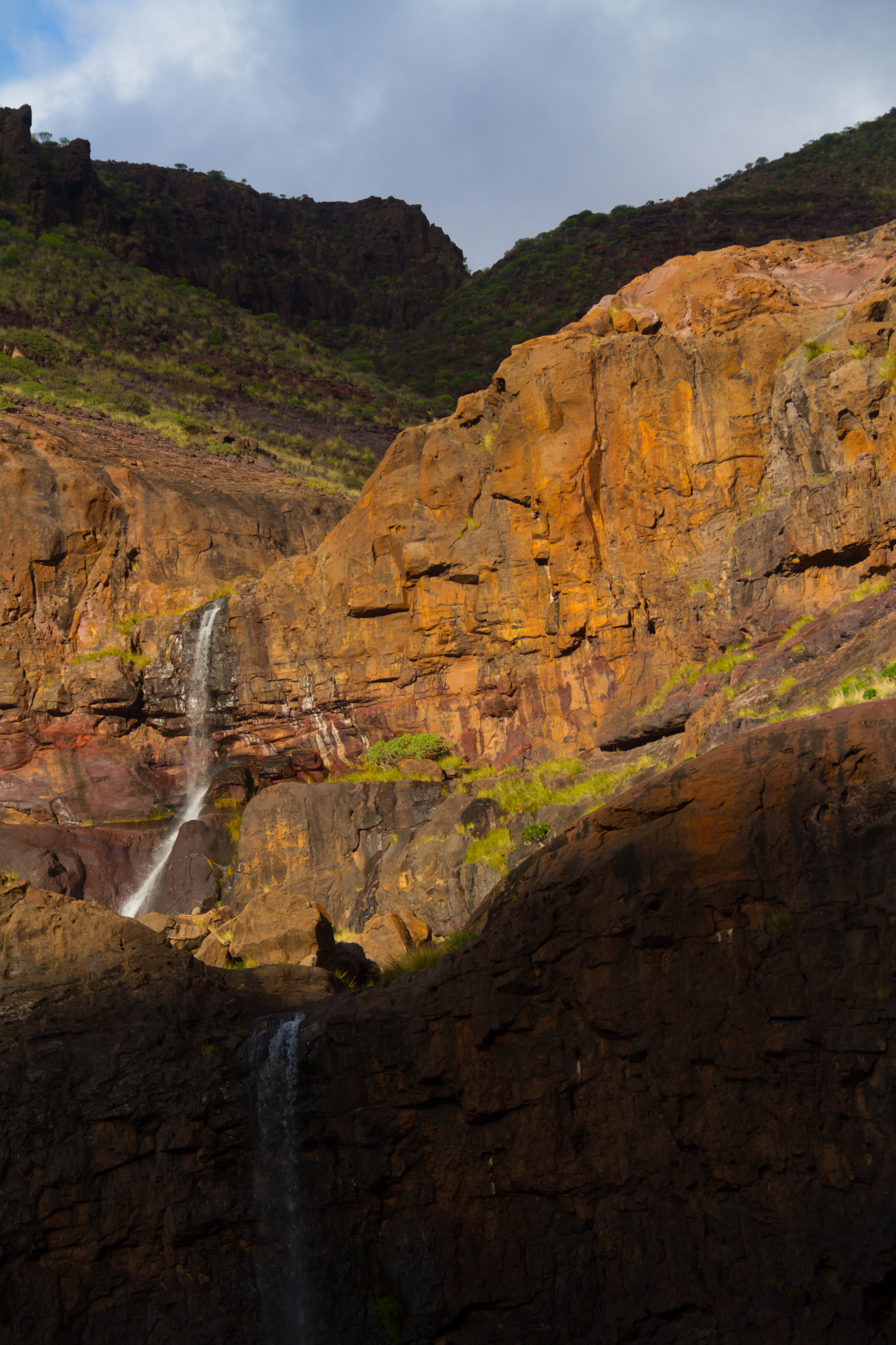 As you drive or walk around Gran Canaria you get the impresssion that it's a dry island because there is no water flowing in the valleys. However, this is an illusion as almost every barranco on the island should have a natural stream.
As you drive or walk around Gran Canaria you get the impresssion that it's a dry island because there is no water flowing in the valleys. However, this is an illusion as almost every barranco on the island should have a natural stream.
Before tourism, water was life in Gran Canaria. Vast networks of water channels carried it from natural springs and deep galleries carved into the island to where it was needed for drinking, washing clothes and watering crops. These stone waterways and aqueducts were built to last for centuries and managed communaly by the people they supplied. The washing points were meeting points for local commmunites and the flowing water kept valleys cool and allowed the island's birds to drink. The water was chanelled but still leaked out to keep palm groves watered.
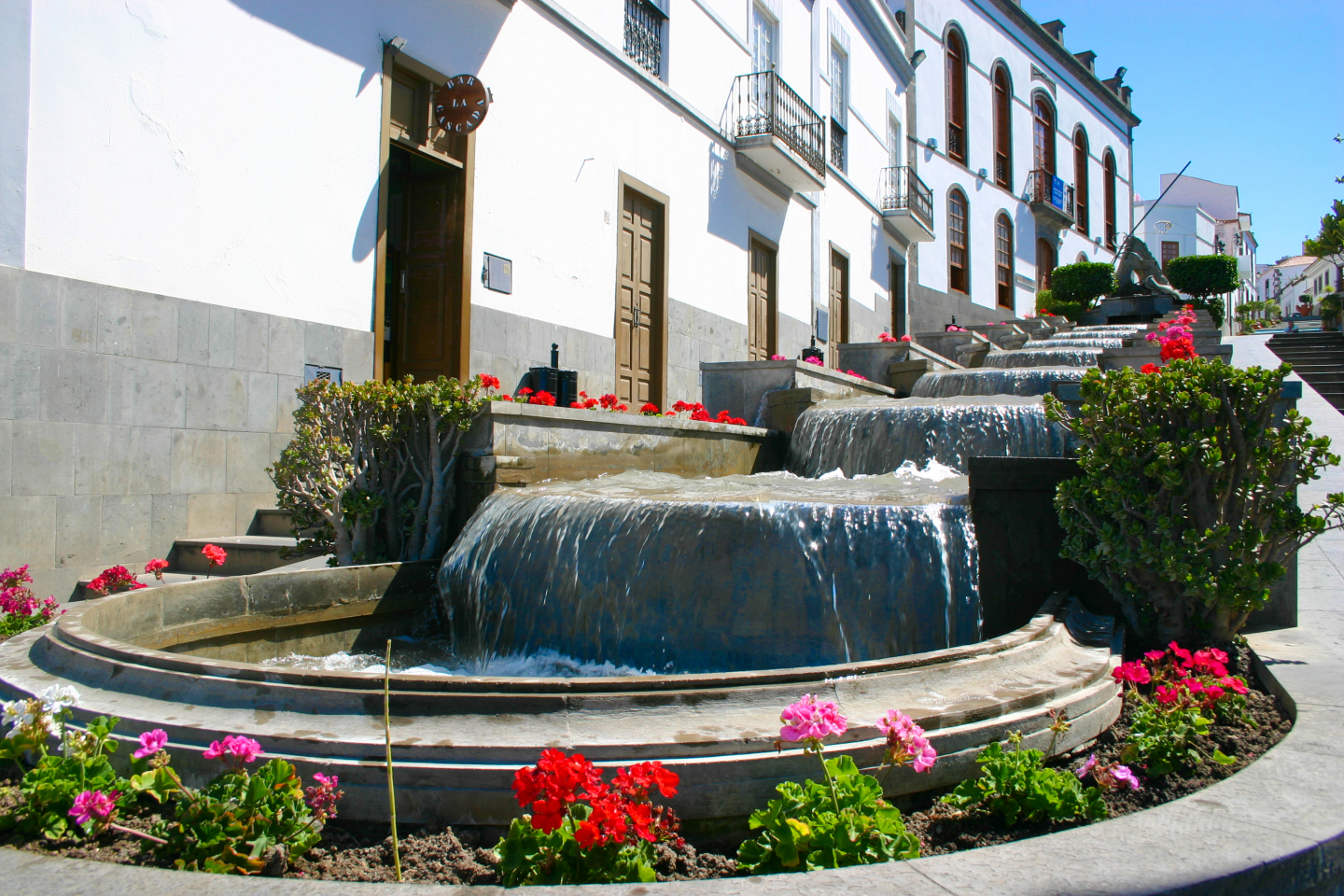 Nowadays most of the water runs through undergound pipes. The old water-sharing agreements have disappeared to be replaced with commercial contracts. Water no longer flows free and a shocking amount goes to irrigating unprofitable banana plantations that only make money thanks to huge subsidies.
Nowadays most of the water runs through undergound pipes. The old water-sharing agreements have disappeared to be replaced with commercial contracts. Water no longer flows free and a shocking amount goes to irrigating unprofitable banana plantations that only make money thanks to huge subsidies.
Palm trees all over the island, such as the Agaete Valley and Telde, have died in their hundreds and there are no streams to act as natural firebreaks during the summer.
Free the water: A common resource and vital for tourism
A growing number of local people are calling for change. Why does the island's water flow out of view? Why do a few people get to decide what it is used for? Why don't we put it back where it belongs; running free down the island's barrancos? Why do we spend a fortune keeping a few farmers in business when the money co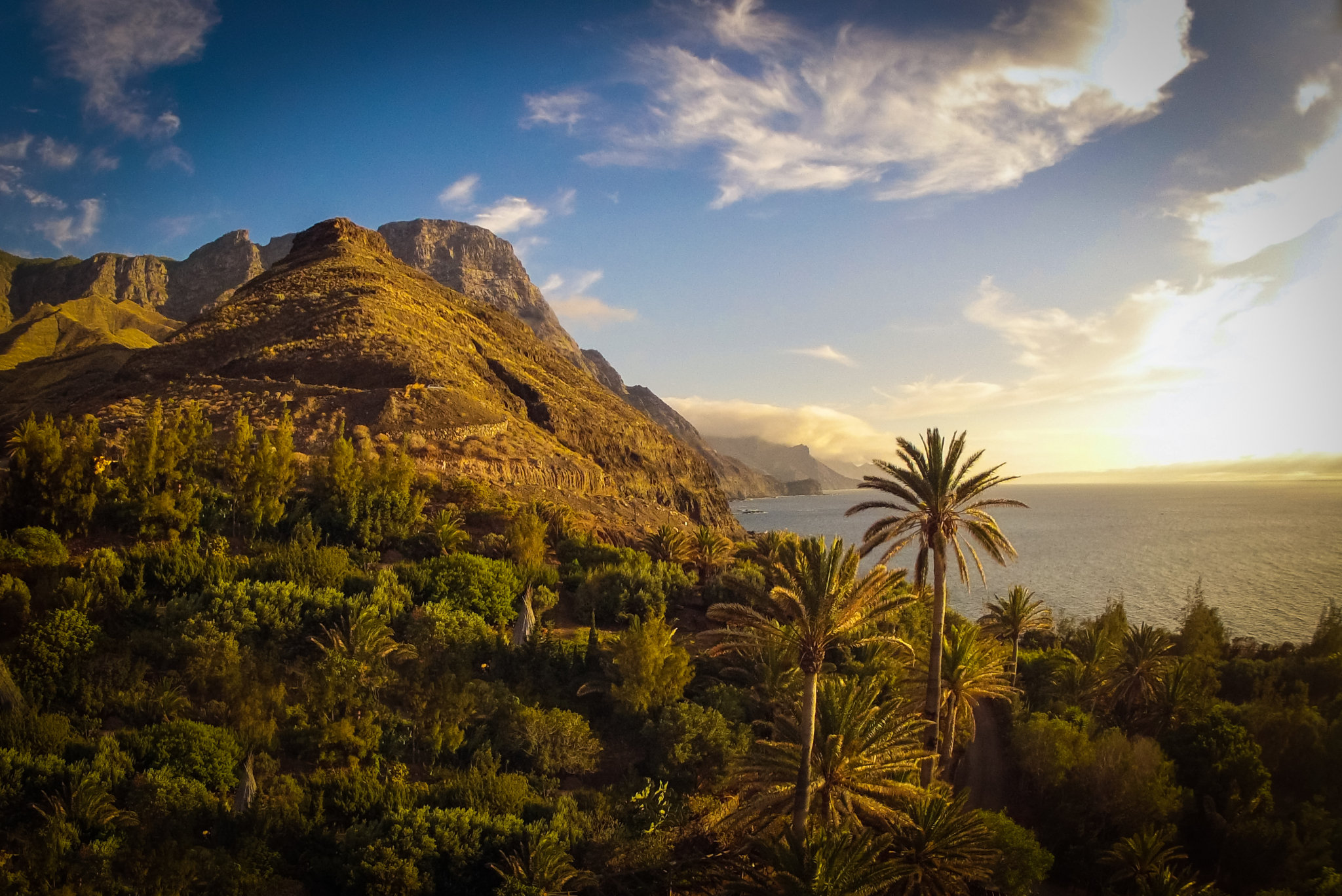 uld be spend on rewilding the island, replanting its forests and making Gran Canaria a more attractive place to live and to visit?
uld be spend on rewilding the island, replanting its forests and making Gran Canaria a more attractive place to live and to visit?
If Gran Canaria wants to be a more attractive place for walkers and visitors, putting the water back would be a good start. You only have to look at the popularity of the few places where free-flowing water remains; Azuaje, Barranco de los Cernicalos, Barranco de la Virgen up by Fontanales, and the water town of Firgas.
Firgas: Gran Canaria's water town
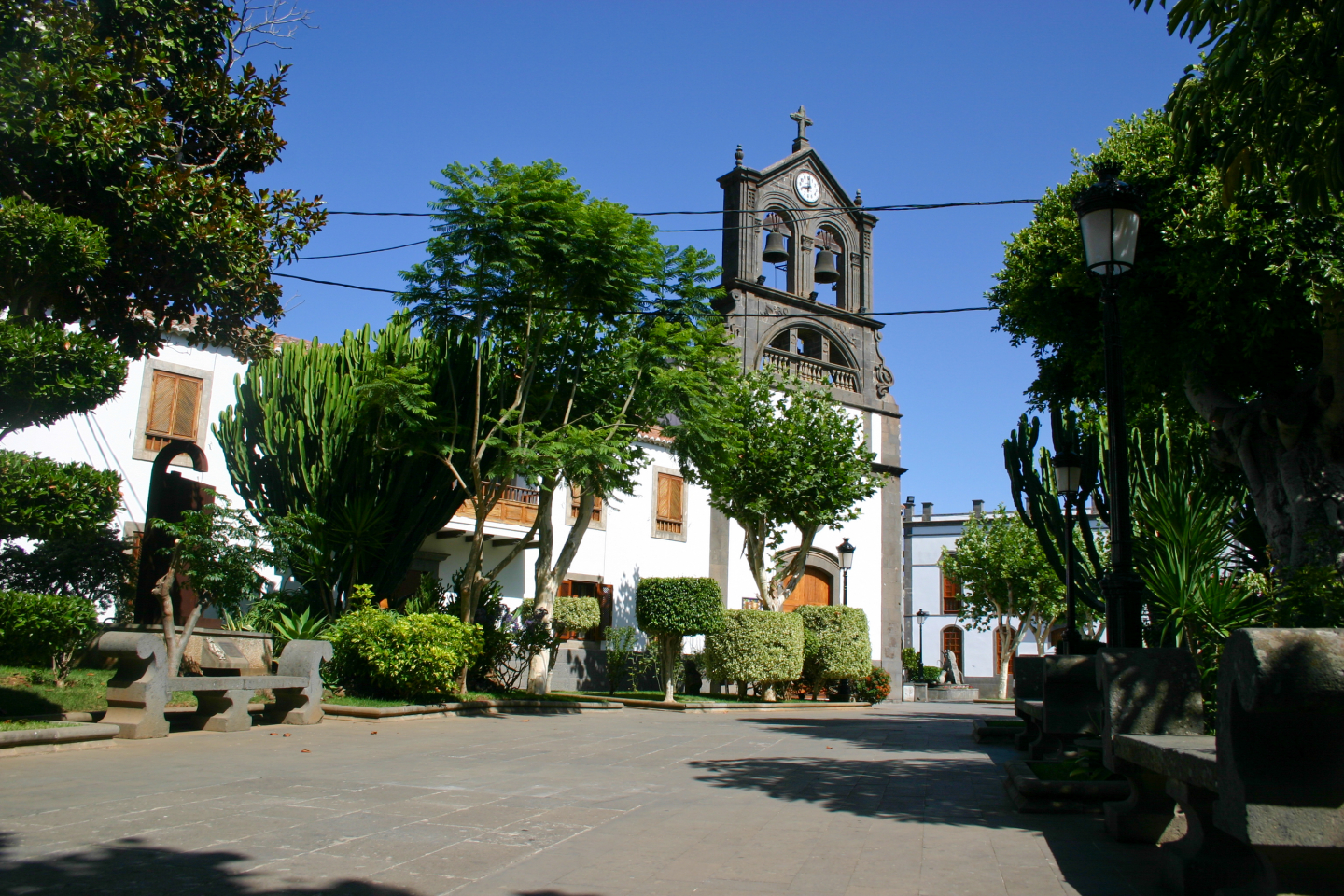 Firgas is the place in Gran Canaria that most visitors associate with water. The islands eponymous mineral water is bottled nearby and the main street in town has a flowing water feature. The old part of town is dotted with restored water mills, aqueducts and water channels.
Firgas is the place in Gran Canaria that most visitors associate with water. The islands eponymous mineral water is bottled nearby and the main street in town has a flowing water feature. The old part of town is dotted with restored water mills, aqueducts and water channels.
In the surrounding countryside, the main crop isn't bananas but watercress or berros, essential ingredient of one of Gran Canaria's most famous dishes; potaje de berros.
And where better to try it that in Firgas itself?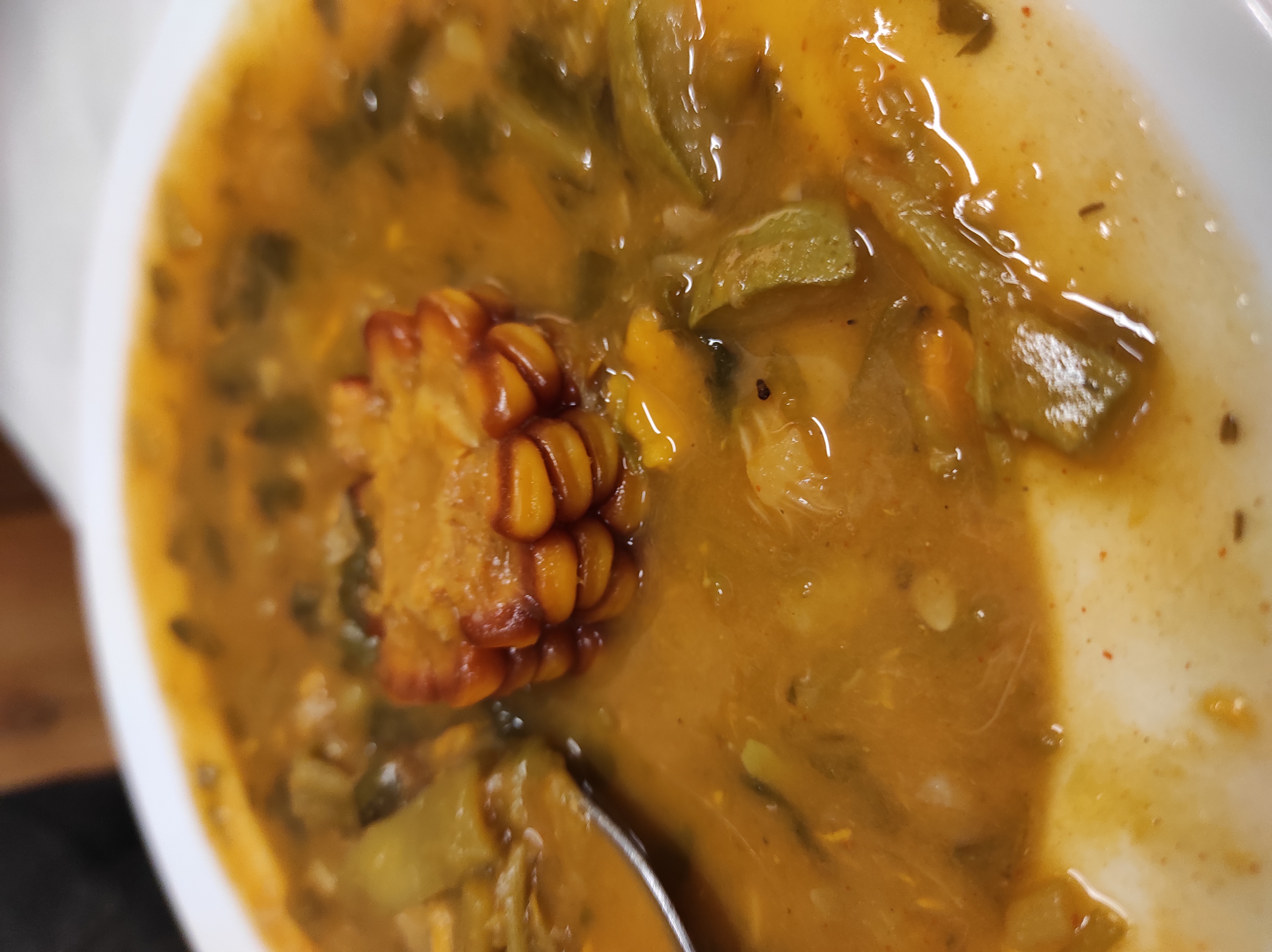
Any restaurant in or around town will serve you up a bowl of watercress, maize and pork soup, often sprinkled with gofio (toasted maize flour).
But one restaurant has upped its berros game beyond just potaje...
El Rincón de Marcos goes all in on the green stuff
El Rincón de Marcos, five minutes walk southwest of the Firgas church, puts watercress into everything. Green, pepperry bread, cress croquettes, green alioli, salads loaded with watercress, watercress soup, even a flan (creme caramel) with a greenish hue for dessert.
The potaje de berros, alioli and croquettas are excellent, as is the bread. The dessert and a couple of other green dishes are more about the novelty than anything else (does anyone re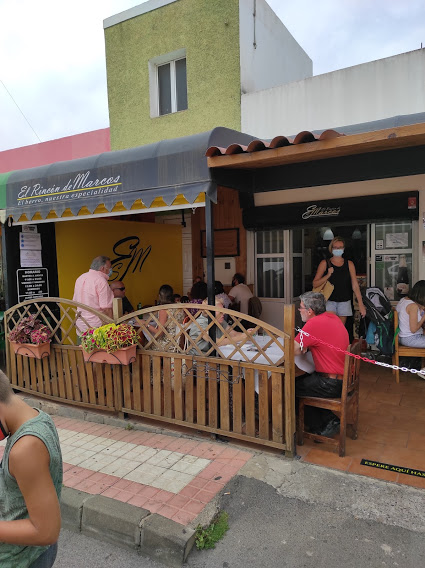 ally need a green flan?). It also serves plenty of non-watercress options like steak, calamares and papas arrugadas.
ally need a green flan?). It also serves plenty of non-watercress options like steak, calamares and papas arrugadas.
The restaurant itself is rustic with an outdoor terrace for warm days and cosy indoor rooms for the inevitable wet days. There's a reason why Firgas is famous for water; it's one of the island's rainiest spots.
Book el Rincón de Marcos if you plan to visit Firgas at the weekend but you should be fine just walking in on weekdays, especially if you turn up early (before 14.00).
1
Firgas town in north Gran Canaria is famous for water. The island's eponymous mineral water is bottled nearby, the main street has a waterfall, and the old part of town is dotted with restored mills and aqueducts.
Gran Canaria's 13 Million Year Old Psychedelic Rocks
Drive the GC 200 west coast road from Mogán to Agaete and your first stop is Fuente de Los Azulejos just past Veneguera village.
Seven Great Gran Canaria Boat Trips
The sea in south Gran Canaria is almost always calm so it's a perfect place to get out on the ocean. You'll experience the island from a fresh perspective, get a tan and probably see dolphins and turtles.
If you really want to spend a day on the water, let our team of Gran Canaria experts know via this WhatsApp form and they'll be in touch to guide you through the options. It's a super-easy way to make sure you choose the right boat trip for you.
Dolphin Watching in south Gran Canaria
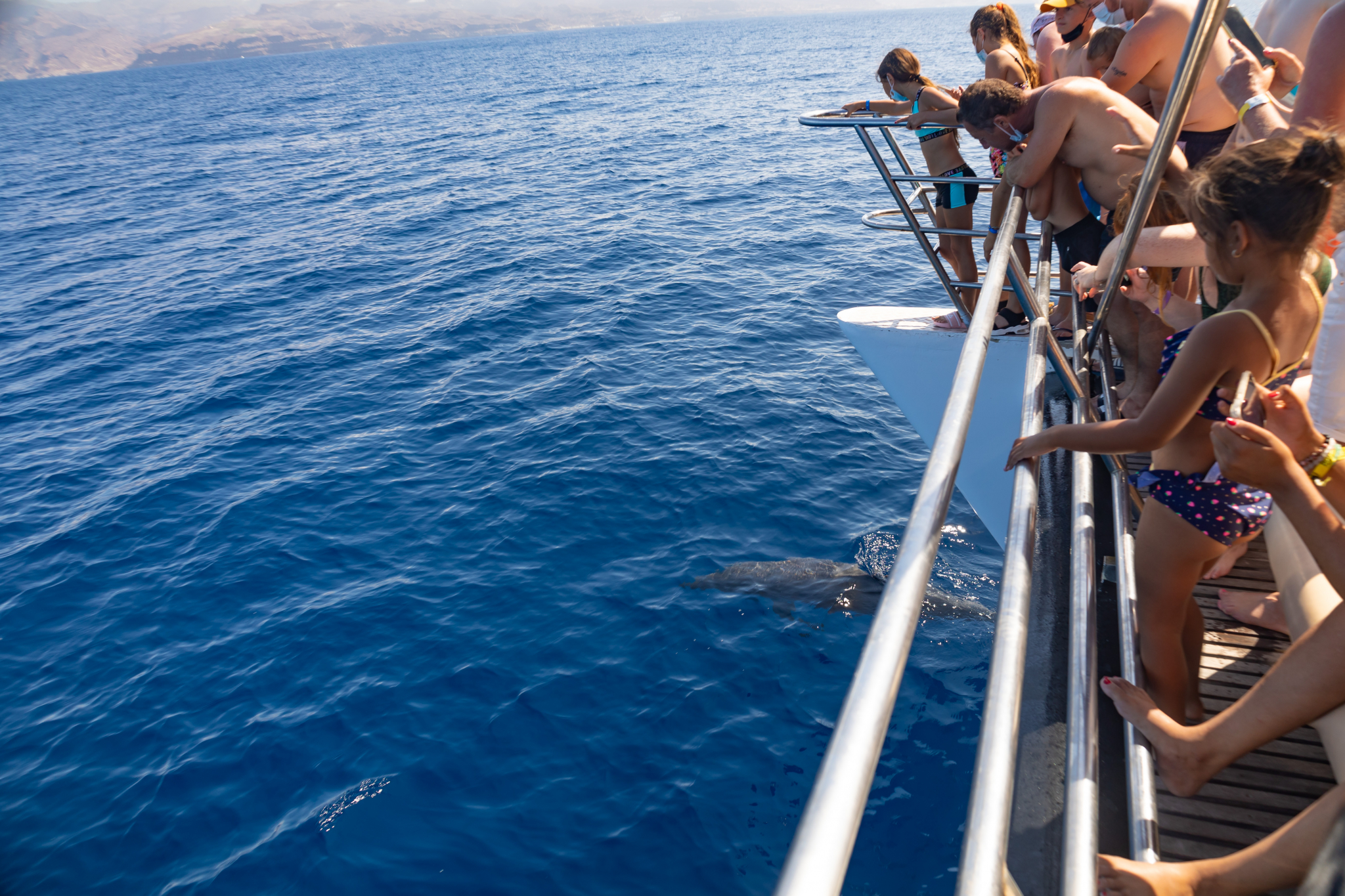 South Gran Canaria is a paradise for dolphins and most people see them on their first trip on a dolphin-watching boat. The most common are bottlenose dolphins (Flipper), but you also get spinner, common, striped and Risso's dolphins. Short-finned pilot whales are pretty common too and there's always the chance of seeing a visiting baleen whale like a minke or sei whale. The mysterious beaked whales pop up every year and turtles are common.
South Gran Canaria is a paradise for dolphins and most people see them on their first trip on a dolphin-watching boat. The most common are bottlenose dolphins (Flipper), but you also get spinner, common, striped and Risso's dolphins. Short-finned pilot whales are pretty common too and there's always the chance of seeing a visiting baleen whale like a minke or sei whale. The mysterious beaked whales pop up every year and turtles are common.
Alex says: Pick a boat that gives you a chance to relax and have a swim afterwards. A smaller boat offers a much quieter and more intimate dolphin experience.
Glass-bottomed ferry trips between Gran Canaria marinas
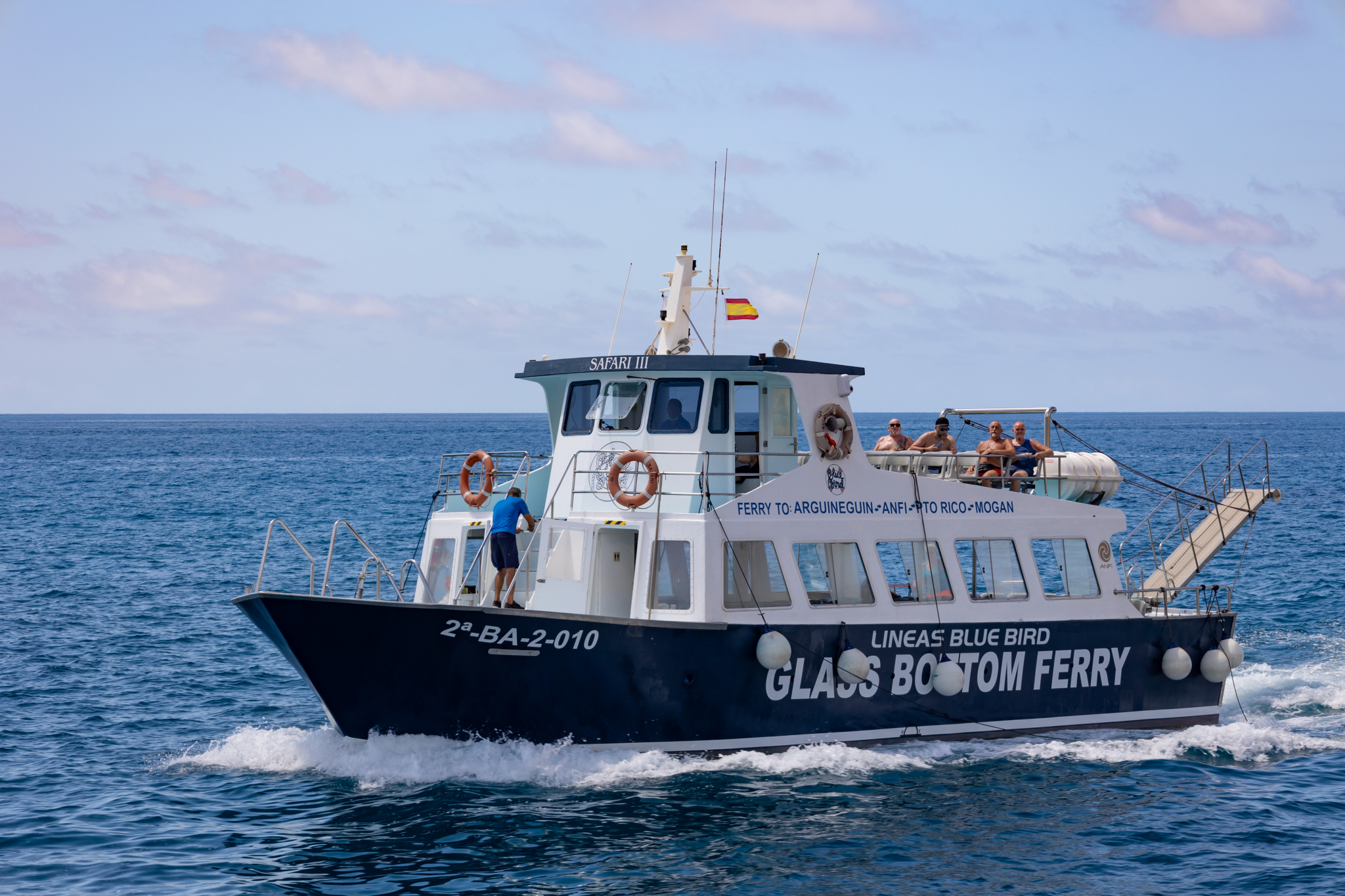 Two ferry companies run between Puerto de Mogán, Puerto Rico, Anfi and Arguineguin on the south coast of Gran Canaria. Choose the glass-bottomed Blue Bird company boats for a chance of spotting barracuda, turtles, rays and even dolphins.
Two ferry companies run between Puerto de Mogán, Puerto Rico, Anfi and Arguineguin on the south coast of Gran Canaria. Choose the glass-bottomed Blue Bird company boats for a chance of spotting barracuda, turtles, rays and even dolphins.
Ferries run all day and round trip prices range between €5.50 and €19 per person depending on distance.
Fishing for marlin, tuna or wreckfish
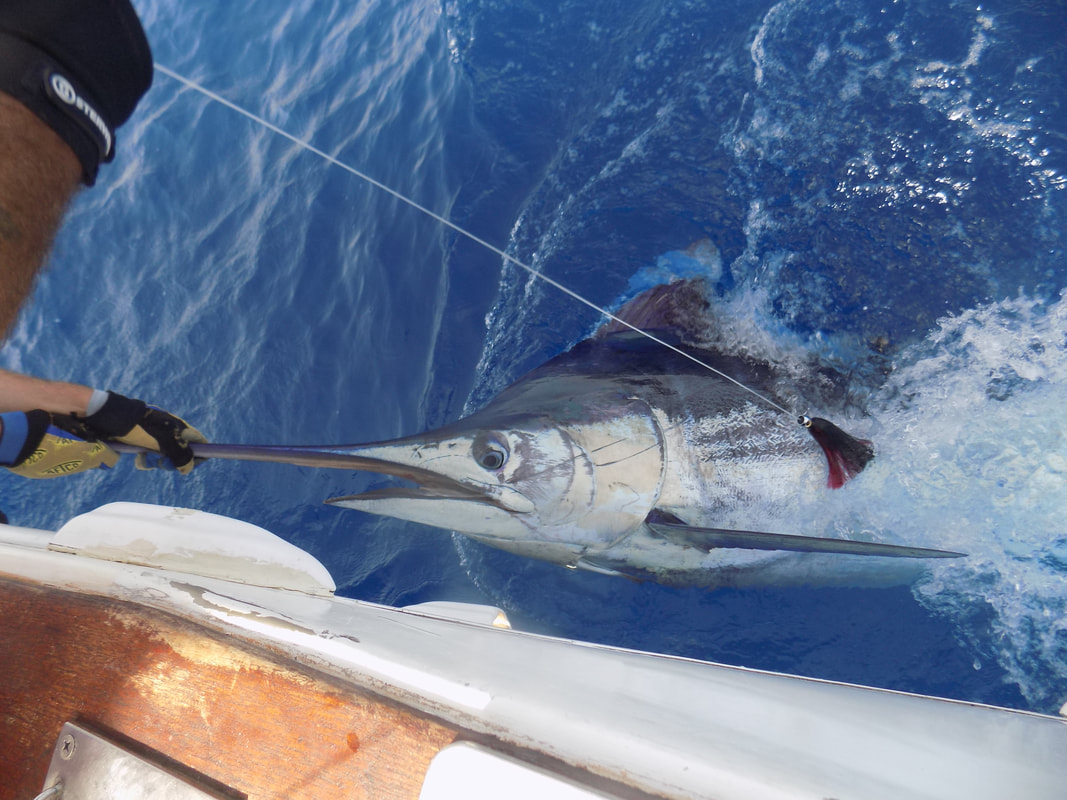 Gran Canaria's deep waters are full of big game fish like wahoo, tuna and marlin. If you fancy a go at catching a truly big fish, then head to the Puerto Rico, Puerto de Mogán or Pasito Blanco marina and book a spot on a big game boat.
Gran Canaria's deep waters are full of big game fish like wahoo, tuna and marlin. If you fancy a go at catching a truly big fish, then head to the Puerto Rico, Puerto de Mogán or Pasito Blanco marina and book a spot on a big game boat.
If the tuna are running, or the marlin are close to the shore, you have a very good chance of seeing some action. Island boats regularly land big tuna, billfish, barracuda, dolphin fish and wahoo. All boats catch and release all the marlin and bluefin tuna that they catch.
Nothing beats the thrill of landing a marlin or a big tuna, but you can't guarantee action on a given day. If you want to go fishing and be sure to catch fish, then choose a bottom fishing excursion. You'll get bream, mackerel, grouper, snappers, moray eels and maybe even a stingray or small shark.
We like the Blue Marlin 3 boat because it publishes a daily diary of what it catches on its website.
Alex says: Ask what depth the boats fish at as it's far more fun to fish in 35 metres of water than in 70 metres; much less winding in.
Yacht trips in south Gran Canaria
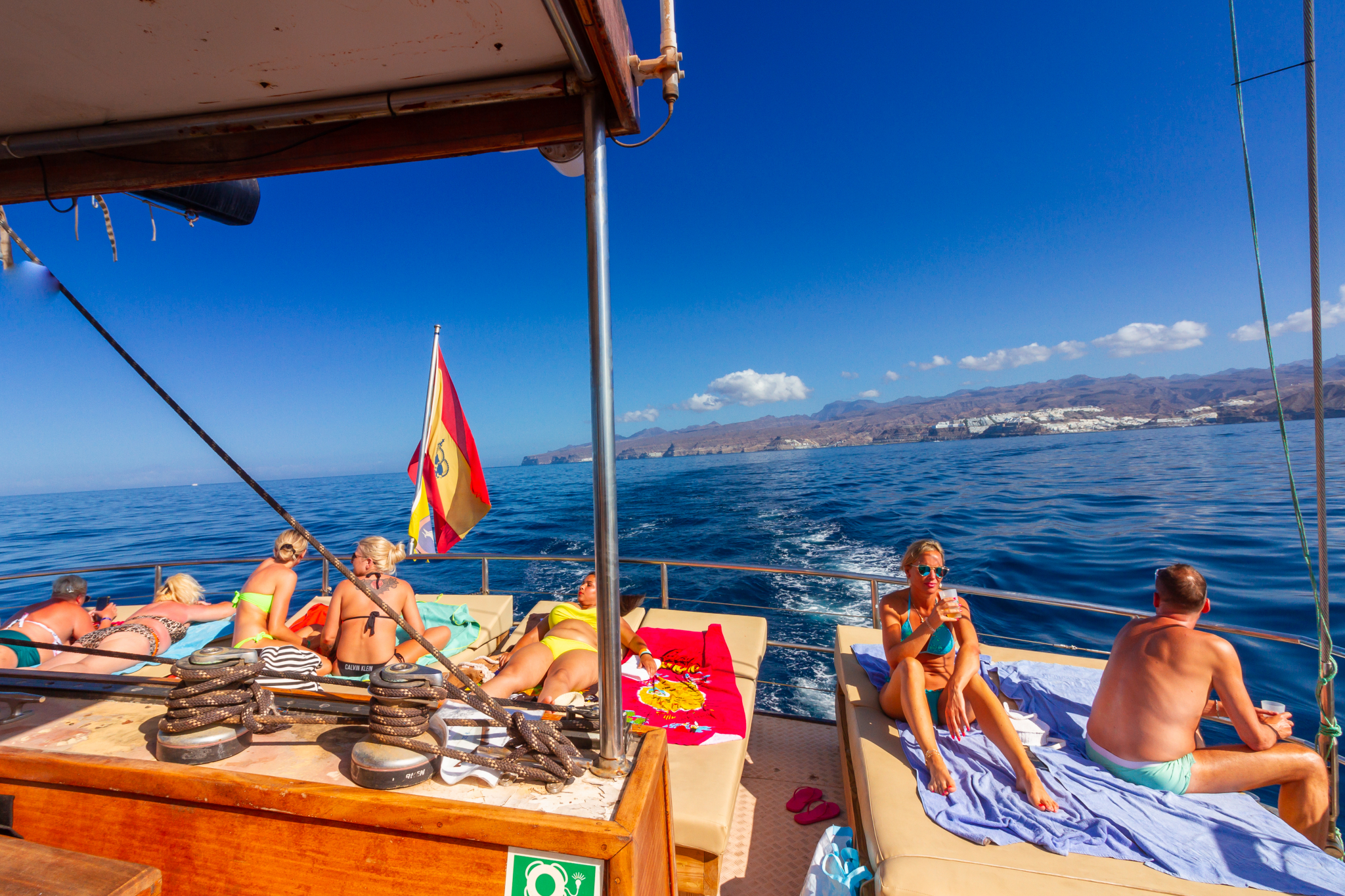 There are plenty of boats leaving Puerto Rico's Puerto Base every day. Some are fun boats, others go for the relaxing day at sea feel.
There are plenty of boats leaving Puerto Rico's Puerto Base every day. Some are fun boats, others go for the relaxing day at sea feel.
Important factors to consider are what food and drink you get for your money, how many people are on the boat with you, where the boat goes and what you can do as extras (banana boat rides, swimming, etc).The classic Gran Canaria boat trip is the Supercat with its large sun deck and swimming platform.
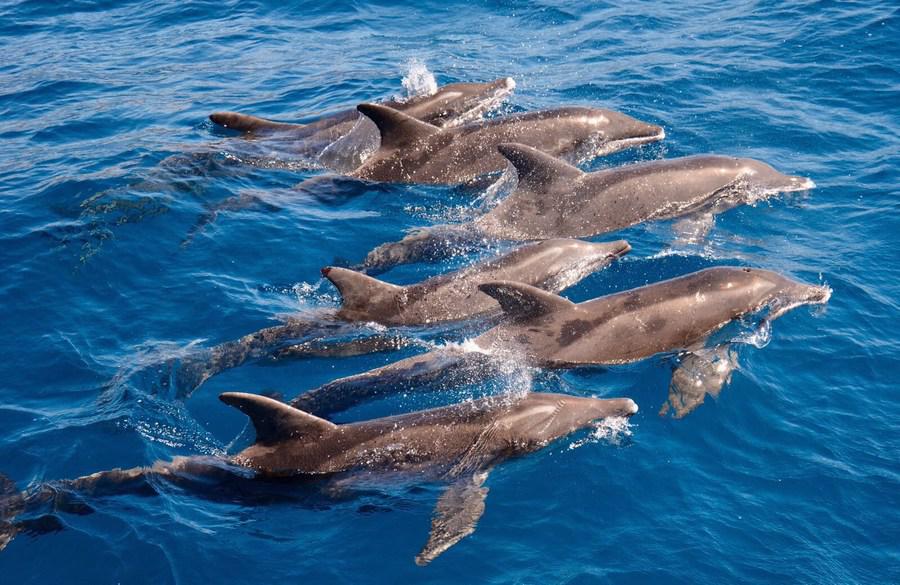 The Afrikat based in Puerto Base in Puerto Rico gets consistently excellent Tripadvisor reviews. It is like an upmarket version of the Supercat.
The Afrikat based in Puerto Base in Puerto Rico gets consistently excellent Tripadvisor reviews. It is like an upmarket version of the Supercat.
For a chilled out boat trip with no queues for drinks in south Gran Canaria, book the Exclusive Boat. This is Gran Canaria's most relaxed catamaran ansd the one that everyone loves the most.
Lex Says: You can book all of Gran Canaria's best boat trips using our super-easy Whatsapp booking form
Go wherever you want with your own boat and captain
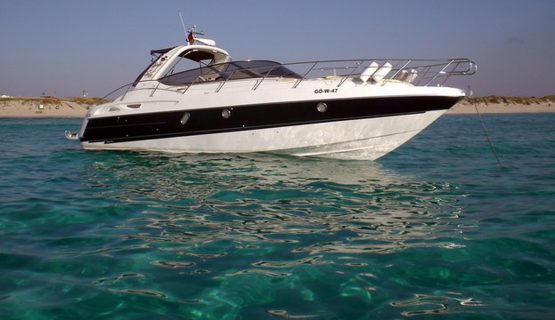 Organisaed boat trips are a whole load of fun but sometimes you just want to have the whole place to yourself. With this luxury speedboat charter, you get the whole boat plus a skipper to do all the work while you just sit back and chill.
Organisaed boat trips are a whole load of fun but sometimes you just want to have the whole place to yourself. With this luxury speedboat charter, you get the whole boat plus a skipper to do all the work while you just sit back and chill.
The Yellow submarine
For an underwater experience but no soggy wetsuits, take a dive with the yellow submarine in Puerto de Mogán. You'll see tons of fish and a genuine wreck as well as a fantasy Greek temple ruin. You don't get many chances to go in a submarine and especially not a yellow one so this is a must book Gran Canaria day trip.
Ferry to Tenerife or Fuerteventura
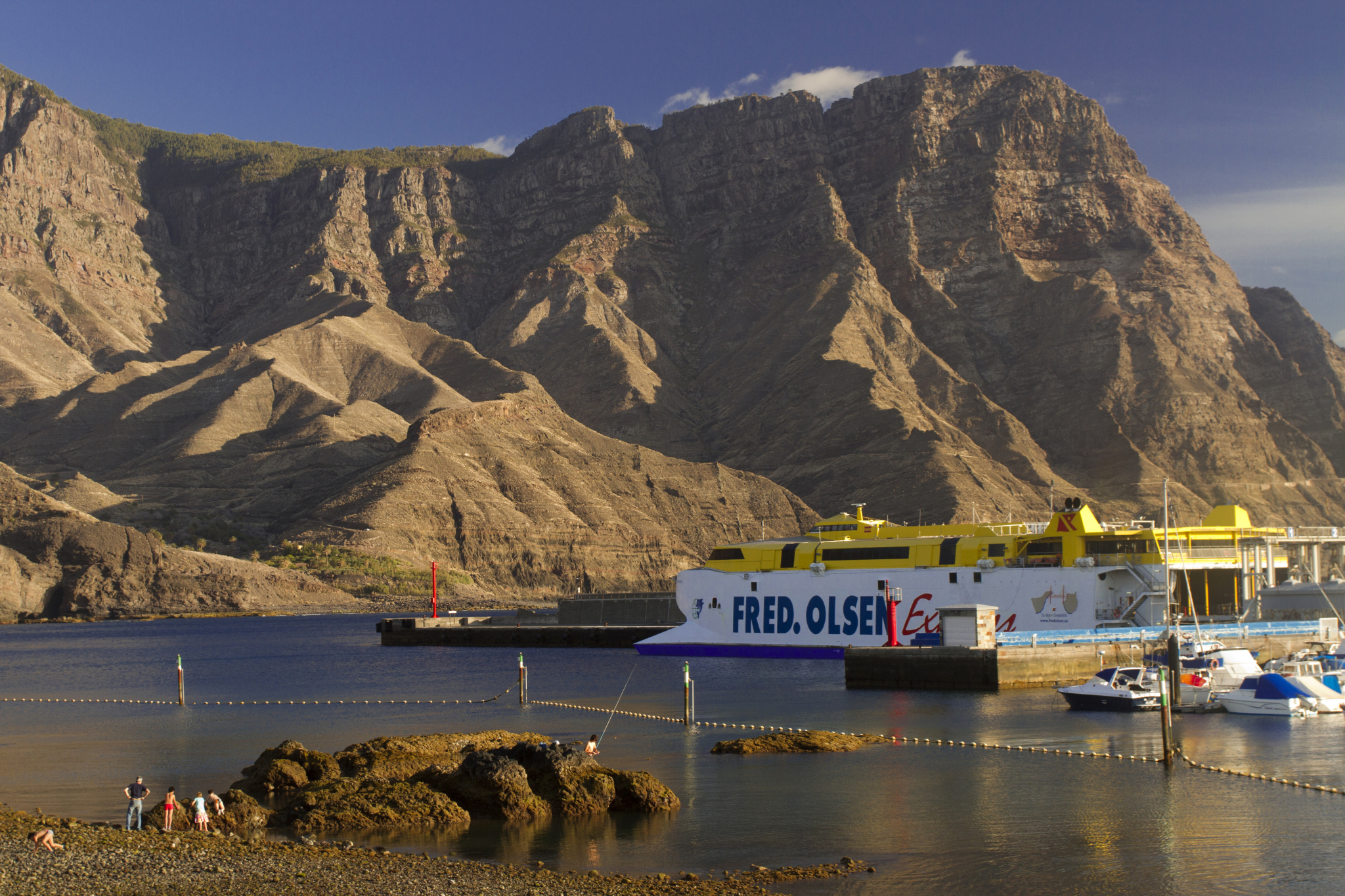 Most visitors to the Canary Islands stay on the island they fly to. However, you can get the fast ferry from Gran Canaria to Tenerife for a day trip if you get up early enough. The fast ferry leaves from Puerto de las Nieves, in the northwest corner of Gran Canaria and goes to Tenerife's capital Santa Cruz. The trip takes an hour.
Most visitors to the Canary Islands stay on the island they fly to. However, you can get the fast ferry from Gran Canaria to Tenerife for a day trip if you get up early enough. The fast ferry leaves from Puerto de las Nieves, in the northwest corner of Gran Canaria and goes to Tenerife's capital Santa Cruz. The trip takes an hour.
Check your hire car insurance policy, as some won't cover you on another island. If you don't take a car, Santa Cruz's centre is small enough to explore on foot and the bus station is a few minutes walk south of the ferry terminal.
Also consider the fast ferry from Las Palmas to Fuerteventura. It takes four hours so, while you can sail both ways in a day, it's best to stay over for a while.
Lex says: Fred Olsen catamarans are the fastest inter-island ferries but Armas boats have open decks.
For the adventurer: Join the ARC Race
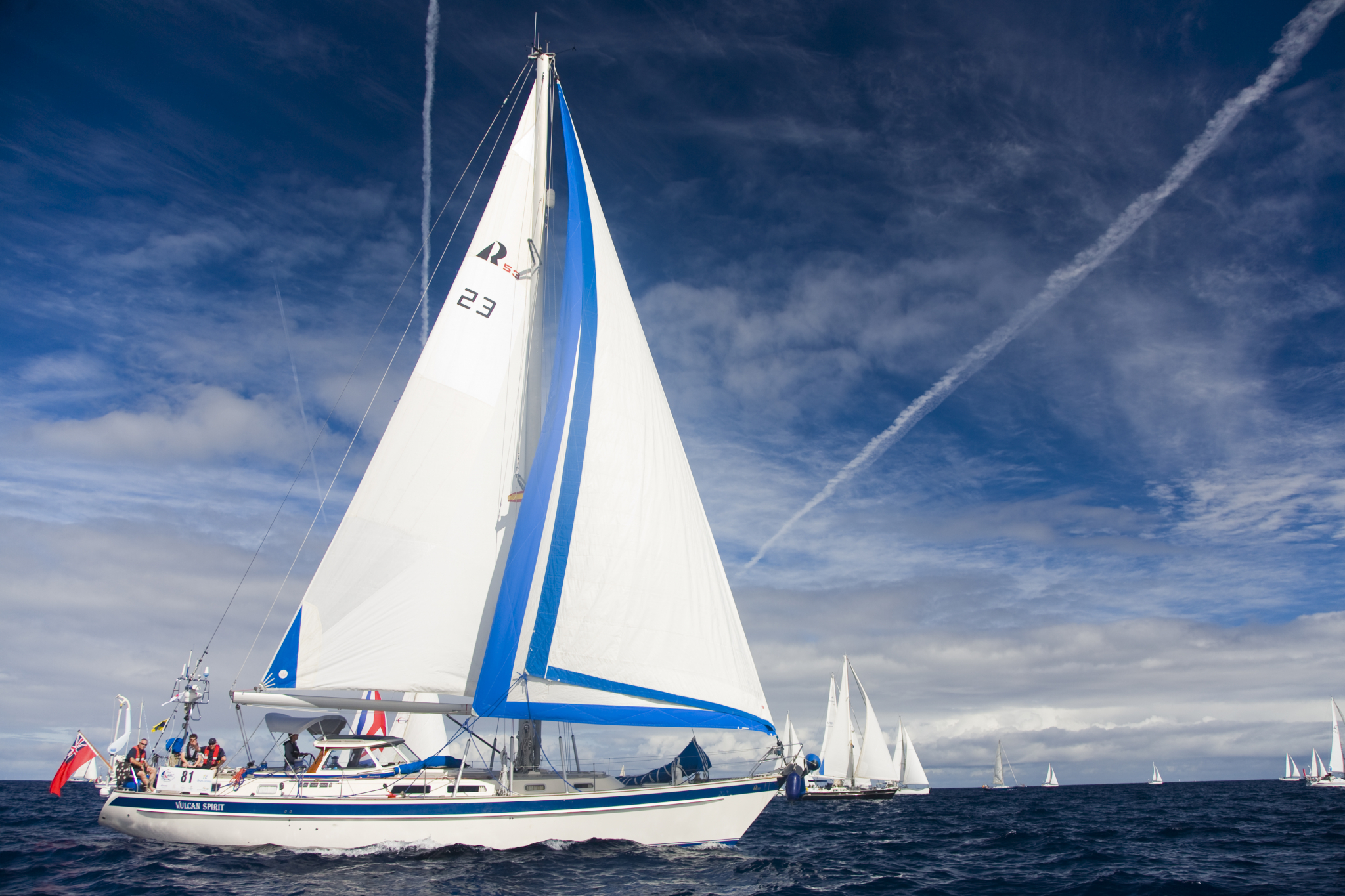 For an epic boat trip starting in Gran Canaria, join the crew of a yacht in the annual ARC race. True adventurers hang around Las Palmas marina in November and find a place on one of the 300 yachts that sail from Las Palmas to St Lucia.
For an epic boat trip starting in Gran Canaria, join the crew of a yacht in the annual ARC race. True adventurers hang around Las Palmas marina in November and find a place on one of the 300 yachts that sail from Las Palmas to St Lucia.
Lots of sailing boats accept crew, but sailing experience helps you get on board. The trip takes about three weeks if you joining a cruising yacht, much less if you are on one of the serious racers. Getting back to Gran Canaria from the Caribbean might be more challenging: The race only goes one way.
GC 15: The North Route Up To The Cumbres
The GC 15 is the main northern route up from Las Palmas to Cruz de Tejeda and the Gran Canaria highlands. It's windy but wide and runs through the green valleys and hillsides of northeast Gran Canaria and a series of interesting towns and villages.
GC 200: Gran Canaria's Most Spectacular Road
The GC 200 has it all from hairpin bends to sheer cliff-edge drops. It's Gran Canaria's most spectacular road and takes you right through the Biosphere Reserve along its most remote coast.
GC 210: Dropping Into Wilderness
Steep and hair-raising, the GC 210 road drops from the pine-shrouded cumbres right down to the west coast town of La Aldea de San Nicolas. It's the kind of the road that fries brake pads and makes grown men cry (we've seen it happen).
But wow, is it spectacular.
GC 210 starts between Cruz de Tejeda and Tejeda on the GC 60. First you drive through Artenara, Gran Canaria's highest village: Stop for views of the island's central caldera and its iconic rocks. Further on the road drops steeply in a series of hair pin bends and get glimpses of the cave village of Acusa Seca (look behind you) and the emerald green Presa de Parralillo reservoir.
The most famous viewpoint here is by the renovated old windmill: A great spot for the photos without having to stop in the road.
This is Gran Canaria at its wildest with huge masses of volcanic rock cleaved by deep ravines. Nobody has lived here since pre-Hispanic times apart from a few goatherds.
The GC 60 links up with the GC 606 that takes you back up to the main road, but it's a steep old climb with huge drop-offs and no barriers.
Otherwise, you come out in La Aldea and have to choose between going north or south along another lunatic road: The GC 200. North takes you along the cliff edge route up the west coast to Agaete and south heads inland through the steep Degollada de Tasarte back to the south.
GC 606: The Wildest Drive In Gran Canaria
Gran Canaria's least-driven road takes you to white villages surrounded by palm and almond trees and past Roque Palmés: Little brother to Roque Nublo.
The GC-606 road is only 12 kilometres long according to Google Maps but takes a good hour and a half to drive as it is barely wide enough for a car and long stretches are barrier-less. It's spectacular or terrifying, depending on how you handle heights.
Starting as a fork on the GC-60 between Tejeda and San Bartolomé (Tunte) it winds downhill to the tiny hamlets of El Toscón and Carrizal de Tejeda before linking to the GC 210 that links Tamadaba with La Aldea. Between the two is a viewpoint overlooking Roque Palmés.
The lower half of the road is the scariest as there's nothing between you and the Barranco bottom hundreds of metres below. Stop for great views back towards the Tamadaba massif and the Presa de Parralillo reservoir in the valley.
This pie slice of the island tucks into a fold and is hidden from the main Cumbre roads. That and the fact that it links up to another crazy road: The GC 210 between Artenara and La Aldea, make it Gran Canaria's least driven tarmac route.
For an idea of just how wild and rugged west Gran Canaria is we recommend it: Just takes things slowly and use the horn on the blind bends.
Ten Top Gran Canaria Towns
There are still towns in Gran Canaria where the children stare at tourists, the menus are only in Spanish and life revolves around family, work, farming and fun rather than keeping tourists happy.
Gran Canaria Info recommends:
- Default
- Title
- Date
- Random

